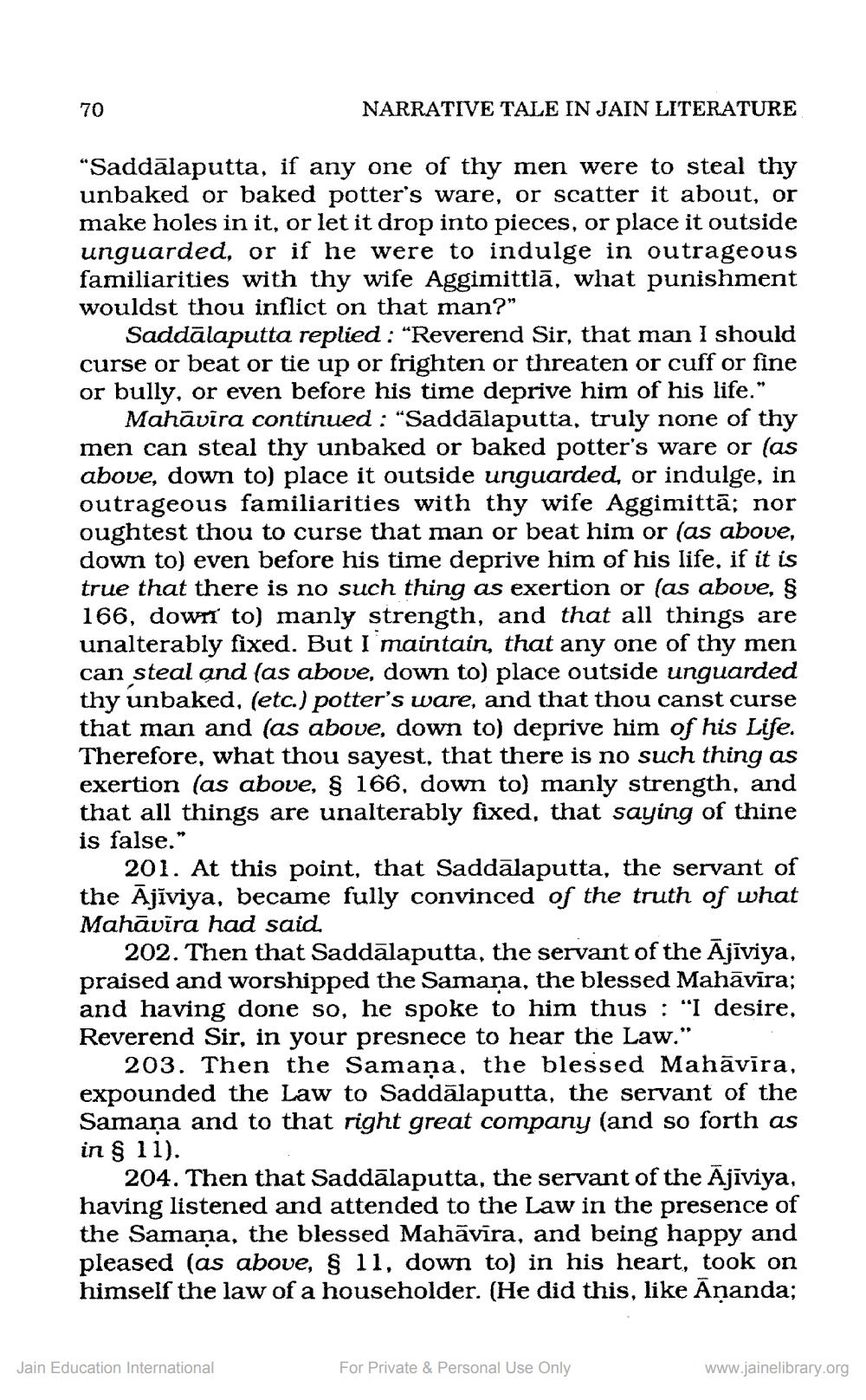________________
70
NARRATIVE TALE IN JAIN LITERATURE
"Saddālaputta, if any one of thy men were to steal thy unbaked or baked potter's ware, or scatter it about, or make holes in it, or let it drop into pieces, or place it outside unguarded, or if he were to indulge in outrageous familiarities with thy wife Aggimittlā, what punishment wouldst thou inflict on that man?"
Saddālaputta replied : “Reverend Sir, that man I should curse or beat or tie up or frighten or threaten or cuff or fine or bully, or even before his time deprive him of his life.”
Mahāvīra continued : "Saddālaputta, truly none of thy men can steal thy unbaked or baked potter's ware or (as above, down to) place it outside unguarded, or indulge, in outrageous familiarities with thy wife Aggimittā; nor oughtest thou to curse that man or beat him or (as above, down to) even before his time deprive him of his life, if it is true that there is no such thing as exertion or (as above, & 166, dowri to) manly strength, and that all things are unalterably fixed. But I maintain, that any one of thy men can steal and (as above, down to) place outside unguarded thy unbaked, (etc.) potter's ware, and that thou canst curse that man and (as above, down to) deprive him of his Life. Therefore, what thou sayest, that there is no such thing as exertion (as above, S 166, down to) manly strength, and that all things are unalterably fixed, that saying of thine is false."
201. At this point, that Saddalaputta, the servant of the Ājīviya, became fully convinced of the truth of what Mahāvīra had said.
202. Then that Saddālaputta, the servant of the Ājīviya, praised and worshipped the Samana, the blessed Mahāvīra; and having done so, he spoke to him thus : "I desire, Reverend Sir, in your presnece to hear the Law."
203. Then the Samaņa, the blessed Mahāvīra, expounded the Law to Saddālaputta, the servant of the Samana and to that right great company (and so forth as in 11).
204. Then that Saddālaputta, the servant of the Ājiviya, having listened and attended to the Law in the presence of the Samana, the blessed Mahāvīra, and being happy and pleased (as above, g 11, down to) in his heart, took on himself the law of a householder. (He did this, like Āņanda;
Jain Education International
For Private & Personal Use Only
www.jainelibrary.org




